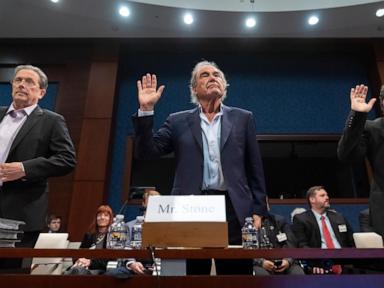House Democrats on Tuesday decried the Trump administration’s rollout of records related to the 1963 assassination of former President Kennedy, raising concerns about the release of personal information even as they agreed with Republican colleagues that there was value in accessing the files.
“We’ve got to have transparency so that we can learn to be better, so that we can hold agencies accountable. But being reckless with this sensitive information is also not the way to do it,” said Rep. Summer Lee (D-Pa.) during a hearing focused on the flood of so-called “JFK files.”
“Unfortunately, the rollout of documents that we’ve seen so far has been sloppy and rushed. The release didn’t really give us a smoking gun, but it did produce plenty of collateral damage,” Lee said.
An executive order from President Trump prompted the National Archives to release thousands of files related to Kennedy’s killing. Through unredacted documents, hundreds of Social Security numbers and other personal data were made public, putting some living individuals named in the records at risk.
Though Democrats on the committee largely said there was value in examining previously classified information, Lee and others sounded alarm about the risks of releasing materials without regard for personal data.
“We know that in the past the government has over-classified documents. … Over-classification at the expense of transparency is something we should all take seriously. But also note that it’s incredibly serious and a delicate subject,” said Rep. Robert Garcia (D-Calif.), the ranking member of the House Oversight Committee’s Task Force on the Declassification of Federal Secrets.
Later in the hearing, Garcia stressed his concern that “a lot of personal information” had been released during the document rollout that has “actually caused harm to folks.”
John Davisson, senior counsel and director of litigation at the Electronic Privacy Information Center, testified that the National Archives were aware that the documents included sensitive personal information – and completed the document release “without taking the steps that are ordinarily taken to redact that information and to ensure the privacy is protected.”
“There’s a whole host of harms that can come from that,” Davisson said, pointing out the possibility of identity fraud and other issues.
The National Archives and Records Administration (NARA) in a release acknowledged that files went out without redactions and contained the personal identification information of some living individuals. Along with the Social Security Administration, NARA said it’s now working “to protect the individuals who may be affected from their information being exploited.”
Officials at the White House have also said there’s a plan in place to help those affected by the document release, according to the Associated Press, but Davisson argued that significant harm can still happen in the meantime.
Also testifying before the committee was Oliver Stone, the American filmmaker behind the 1991 political thriller “JFK,” which stoked conspiracy questions surrounding Kennedy’s death.
“I ask the committee to reopen what the Warren ...












